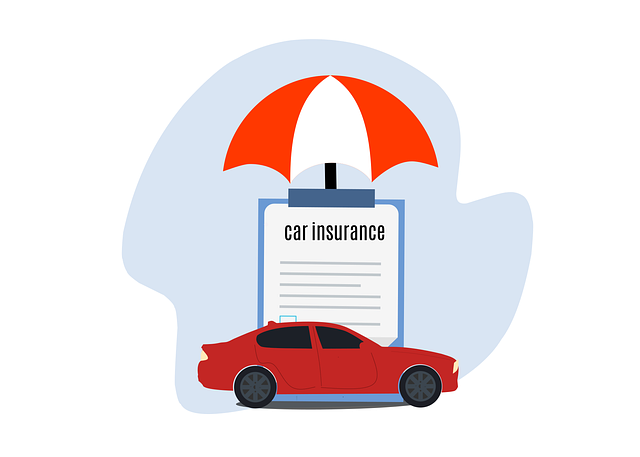Collision insurance is an essential component of auto insurance policies that protects vehicle owners from financial loss due to car collisions with other vehicles, structures, or natural obstacles, covering repair costs if the damage can be fixed or offering compensation equivalent to the car's actual cash value if it's a total loss. This coverage applies regardless of fault in an accident and involves selecting a deductible, which balances your out-of-pocket expenses at claim time with your monthly insurance premiums—higher deductibles lower premiums but require more self-payment, while lower deductibles come with higher premiums. The cost of collision insurance is influenced by personal driving history, vehicle type and worth, age, residence, and deductible choice. Drivers with clean records may benefit from more favorable rates, while those with accident or violation history typically face higher premiums. Collision coverage can be expensive but is crucial for protecting against high repair or replacement costs after an accident. It's different from comprehensive coverage and liability coverage. When selecting a collision insurance policy, consider your vehicle's value, age, and condition; the driving environment you navigate; and how these factors influence both the cost of repairs and the depreciation of your vehicle. Regularly reassess your coverage to ensure it aligns with your car's current value and your personal driving patterns. Always understand your policy's terms, including coverage limits and any exclusions or limitations, and shop around for quotes to find the best rates without compromising on necessary protection. Remember that collision insurance only covers damage to your own vehicle, so complement it with liability coverage to protect against damages or injuries you may cause to others. By carefully considering these factors, you can choose a collision insurance policy that offers suitable protection while avoiding unnecessary financial strain.
Exploring the nuances of collision insurance can demystify a critical aspect of vehicle protection. Whether you navigate the road seasoned or are charting your new driver journey, understanding what collision coverage entails is pivotal. This article will dissect the intricacies of collision insurance, from its coverage particulars to cost-benefit analyses. We’ll delve into how this auto insurance aspect varies for different drivers and compare it with other forms of coverage. Additionally, we’ll offer guidance on selecting the optimal collision insurance policy to safeguard your investment in your vehicle. Join us as we illuminate the value of collision insurance in the context of financial security against vehicular mishaps.
- Understanding Collision Insurance: Coverage Details
- Collision Insurance Costs and Savings: Is It Affordable?
- Evaluating the Necessity of Collision Coverage for Different Drivers
- Comparing Collision Insurance with Other Auto Coverages
- Tips for Choosing the Right Collision Insurance Policy
Understanding Collision Insurance: Coverage Details

Collision insurance is a key component of an automobile insurance policy that offers protection against damage to your own vehicle resulting from a collision. This coverage applies when your car collides with another object, such as another vehicle, a stationary structure, or even a tree or pothole. It also covers rollovers and single-vehicle incidents where contact with an object is involved. The policy typically pays for the cost of repairs if the damage can be fixed, or it offers compensation equivalent to the actual cash value of your car if it’s deemed a total loss. This means that whether you’re at fault or not, collision insurance helps mitigate the financial repercussions of an accident.
Furthermore, with collision insurance, policyholders have the flexibility to choose their deductible, which is the amount they agree to pay out-of-pocket before their insurance kicks in. This choice affects both the monthly premium and the level of coverage. A higher deductible usually leads to lower premiums but requires more out-of-pocket expense in the event of a claim. Conversely, a lower deductible means higher premiums but less out-of-pocket cost when filing a claim. Additionally, the coverage limits and specific terms are dictated by your insurance policy, which should be carefully reviewed to understand what is covered and any exclusions or limitations that may apply. Understanding these details helps drivers make informed decisions about their collision insurance coverage, ensuring they have the protection they need without overpaying for unnecessary features.
Collision Insurance Costs and Savings: Is It Affordable?

Collision insurance costs vary depending on a multitude of factors, including your driving record, the type and value of your vehicle, your age, where you live, and the amount of your deductible. Generally, drivers with a history of accidents or traffic violations will face higher premiums, as they are perceived to be at a greater risk of filing a collision claim. Conversely, those with a clean driving record may benefit from more competitive rates. The cost of collision insurance can also fluctuate based on geographical location; areas with higher traffic volumes or incidences of car theft and vandalism typically come with pricier policies.
Despite the potential costs, the savings provided by collision insurance can be substantial, especially in the event of a serious accident. The policy covers repairs or replacement for your vehicle regardless of who is at fault, which can protect you from out-of-pocket expenses that could otherwise be financially burdensome. To mitigate costs, consider opting for a higher deductible, as this will lower your monthly or annual premium. Additionally, evaluating different insurance providers and comparing quotes can yield significant savings. It’s also prudent to review your policy annually to ensure it aligns with your current vehicle value and driving habits, as these factors influence the cost and coverage of your collision insurance.
Evaluating the Necessity of Collision Coverage for Different Drivers

When evaluating the necessity of collision coverage, drivers must consider several factors that influence their risk profile and financial preparedness for potential vehicle damage. Novice drivers, who are statistically more likely to be involved in accidents, can greatly benefit from this insurance. It offers them peace of mind and protection against high costs associated with repairs or replacement after an incident. For experienced drivers with a clean record, the decision might hinge on the value of their vehicle, the likelihood of driving in areas prone to collision risk, and personal financial stability. If a car is new or particularly expensive to repair, maintaining collision coverage is often advisable due to the significant out-of-pocket expenses it can help avoid. Conversely, if a driver’s vehicle is older and less costly to fix or replace, they might opt for higher deductibles or even forgo this coverage, especially if their financial reserves are robust enough to cover potential repair costs without undue hardship. Regardless of driving experience, understanding the terms of collision insurance, including deductibles, coverage limits, and policy caps, is crucial. It allows drivers to make informed decisions that align with their individual circumstances and risk tolerance, ensuring they remain protected on the road without overpaying for unnecessary coverage.
Comparing Collision Insurance with Other Auto Coverages

When evaluating collision insurance against other auto coverages, it’s crucial to understand its unique role within your overall policy. Collision insurance specifically addresses incidents where your vehicle collides with another object, such as another car, a stationary fixture, or a natural feature like a tree or a rock. This coverage is distinct from comprehensive insurance, which covers damage to your vehicle from non-collision events like theft, vandalism, natural disasters, or animal collisions. Both collision and comprehensive coverages pay out for repairs or replacement of your vehicle, but they cater to different types of incidents.
Additionally, liability coverage is separate and is designed to protect you financially if you are at fault in an accident that causes damage or injury to others. It covers the costs associated with bodily injury and property damage claims made by third parties. By contrast, collision insurance is tailored to cover your own vehicle under similar circumstances where you are deemed at fault. Combining collision insurance with comprehensive coverage can offer a robust shield against a wide array of potential mishaps. Given the varying deductibles, limits, and costs associated with each type of coverage, it’s important for drivers to assess their individual needs and driving habits to determine the most suitable combination of coverages for their situation. This tailored approach ensures that whether you’re navigating a busy city street or a quiet country road, you have the right protection in place.
Tips for Choosing the Right Collision Insurance Policy

When selecting the right collision insurance policy, it’s crucial to evaluate several factors to ensure your coverage aligns with your needs and financial situation. Firstly, assess your vehicle’s value and consider the age and condition of your car. Older models may be less expensive to insure due to depreciation but could also have higher repair costs relative to their worth. Conversely, newer cars might have higher insurance premiums but can be covered for more than just their current market value, which includes the cost of new parts and potential labor costs.
Another important aspect to consider is your deductible. A higher deductible will typically lower your monthly premium, but you’ll need to be prepared to pay more out-of-pocket should you need to file a claim. It’s also advisable to compare coverage options from various insurers. Shop around for quotes, and don’t hesitate to ask about discounts that could apply to you, such as those for drivers with a clean record or for completing defensive driving courses. Additionally, review your policy annually to ensure it remains suitable, especially if there are significant changes to your car or driving habits. Keep in mind that collision insurance only covers damage to your vehicle resulting from collisions with other vehicles or objects, so ensure you also have adequate liability coverage to protect against damages or injuries you may cause to others. With careful consideration and thorough research, you can choose a collision insurance policy that provides the right level of protection without unnecessary expense.
When navigating the complexities of auto insurance, understanding what collision insurance covers is pivotal. This article has demystified the details of collision coverage, delineated its costs and potential savings, and assessed its relevance for various drivers. It’s clear that while collision insurance may seem an optional add-on, it plays a crucial role in safeguarding your vehicle from financial setbacks stemming from accidents where you are at fault. The comparative analysis with other auto coverages underscores the value of this protection, particularly against the backdrop of escalating repair costs. As such, whether you’re an old hand or a novice on the road, investing in collision insurance is a judicious decision to secure your financial well-being and peace of mind.



